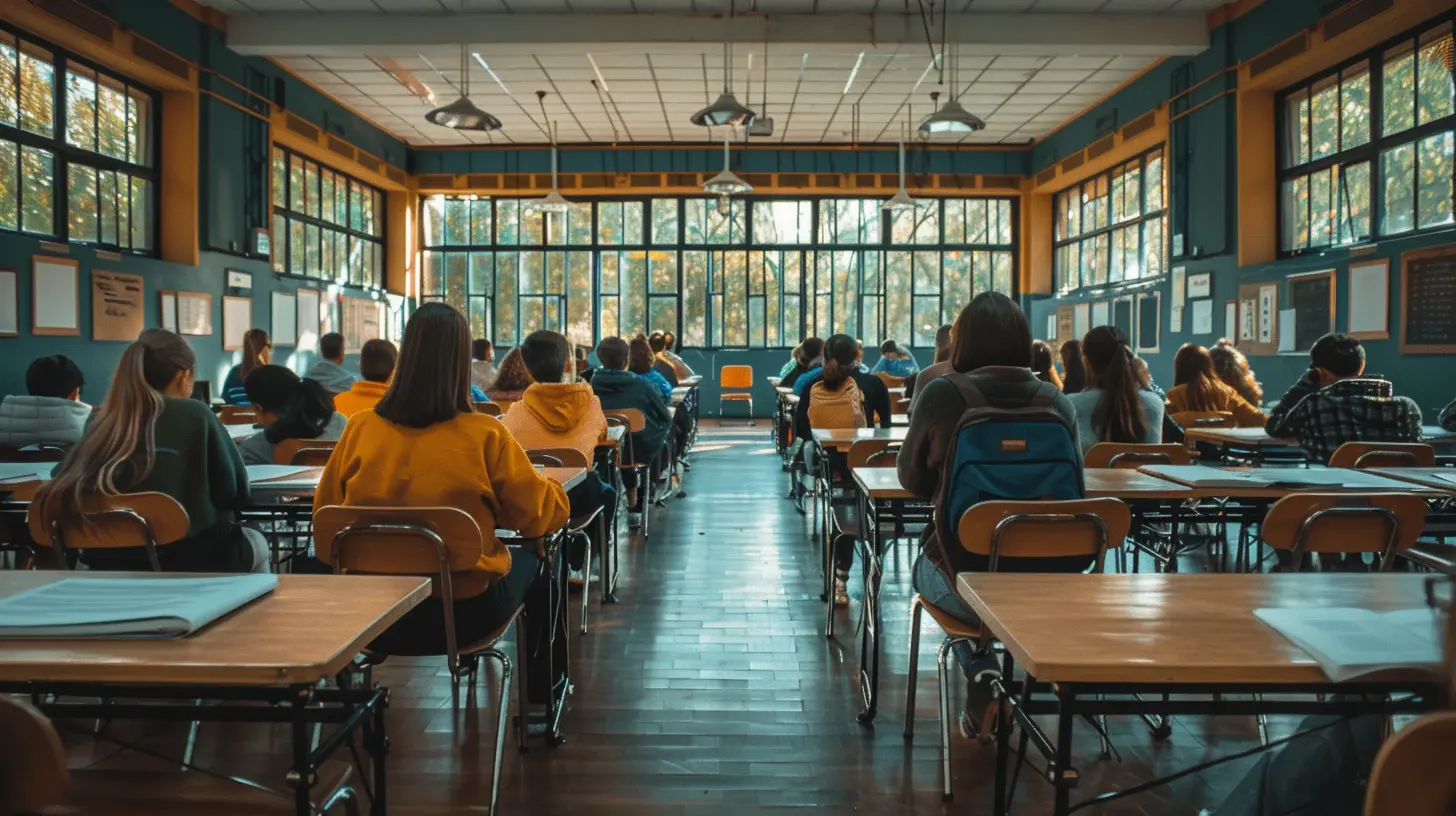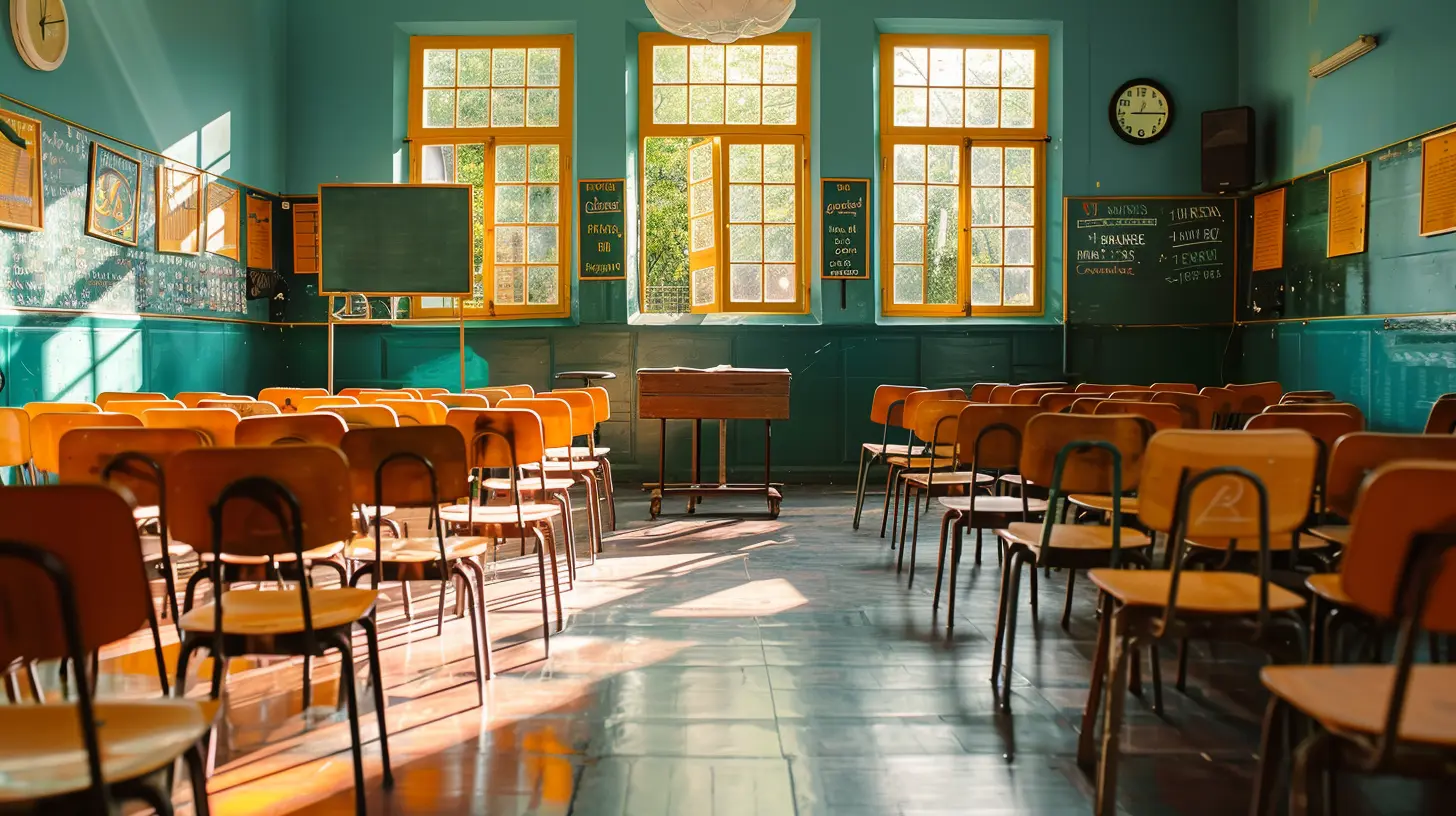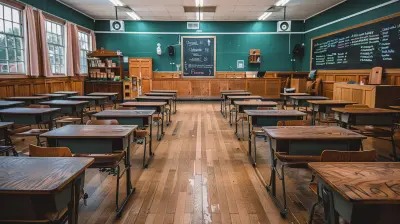How to Build a Career-Ready Curriculum for High School Students
19 March 2025
Are you wondering how to set high school students up for real-world success? You're not alone. It's no secret that the traditional education system has been under fire for not preparing students to thrive in the modern workforce. The classic "one-size-fits-all" approach just isn’t cutting it anymore. But here's the good news: you can make a change! With a well-crafted, career-ready curriculum, high school students can be equipped with not just academic knowledge, but practical skills that will help them transition smoothly into their future careers.
In this article, we'll dive deep into how to build a career-ready curriculum for high school students. Whether you're a teacher, a school administrator, or even a parent, we'll break down actionable steps you can take to ensure students are ready for whatever comes next.

Why Focus on a Career-Ready Curriculum?
Before we jump into the "how," let’s talk about the "why." Why should we focus on preparing students for a career while they're still in high school?The World is Changing Fast
We live in a rapidly evolving world. Technology is advancing at breakneck speeds, new industries are emerging, and the traditional 9-to-5 job structure is shifting. Think about it—jobs that exist today, like social media managers or data scientists, didn’t even exist 20 years ago. This means that by the time current high school students graduate, they’ll need to be ready for roles that we might not even be able to imagine yet.A career-ready curriculum helps students develop the adaptability, critical thinking, and problem-solving skills they’ll need to handle whatever the future throws at them.
Bridging the Gap Between School and Work
Too often, students graduate high school without a clear understanding of how to apply what they’ve learned in the real world. A career-ready curriculum bridges this gap by integrating academic lessons with practical skills, making the transition from school to work much smoother. After all, what's the point of knowing how to solve complex equations if you don't know how to manage your time or collaborate with a team?
Key Components of a Career-Ready Curriculum
Now that we’ve established why a career-ready curriculum is essential, let’s dig into the key elements that should be included.1. Core Academic Skills
Of course, traditional academics still matter. A strong grasp of math, science, language arts, and social studies is crucial. But here’s the twist: these subjects need to be taught in ways that emphasize their real-world applications.Let’s say you’re teaching geometry. Instead of just focusing on abstract shapes and formulas, why not show students how geometry is used in architecture, engineering, and even video game design? By connecting academic content to real-world careers, students will be more engaged and, more importantly, better prepared.
2. 21st Century Skills
If there's one thing every employer looks for these days, it's "soft skills." We're talking about communication, critical thinking, collaboration, and creativity—often referred to as the "4 Cs." These are the skills that help students thrive in any career and are just as important as academic knowledge, if not more so.For example, students should practice working in teams on group projects, learning how to listen to others and provide constructive feedback. Encourage them to think critically about problems and come up with innovative solutions. These experiences are invaluable in the workplace.
3. Technical Skills and Digital Literacy
In today’s tech-driven world, students also need to be digitally literate. That doesn’t just mean knowing how to use a word processor or browse the internet. It means being able to code, understand data, and use technology as a tool for solving problems.Including technical skills like coding, graphic design, or even basic IT troubleshooting in the curriculum will give students a leg up when they enter the workforce. Plus, many high-demand jobs, like those in STEM fields, require technical expertise.
4. Career Exploration Opportunities
How can students prepare for a career if they don’t know what options are out there? That’s where career exploration opportunities come in. Schools should provide students with the chance to learn about a variety of fields through guest speakers, internships, or even job shadowing programs.For instance, students interested in healthcare could spend a day at a local hospital, while those leaning towards tech could visit a software company. By experiencing different careers firsthand, students can make more informed decisions about their future.
5. Entrepreneurship Education
Not every student is destined to work for someone else. Some will want to start their own businesses or turn their passions into profit. That’s why including entrepreneurship education in your curriculum is a must.Through entrepreneurship programs, students can learn how to think like business owners—developing ideas, creating business plans, and understanding financial literacy. These skills not only prepare students to start their own ventures but also make them more valuable employees in any business setting.
6. Financial Literacy
Speaking of financial literacy, this is one area where traditional curriculums often fall short. Let’s face it: most high school graduates don’t know how to budget, manage debt, or invest. Yet, these are essential life skills that every young person needs to succeed in adulthood.By incorporating financial literacy into the curriculum, students can learn how to manage their money, build credit, and even start saving for retirement. Trust me, their future selves will thank you!
7. Real-World Problem Solving
We’ve touched on this already, but it’s so important that it deserves its own section. Real-world problem solving is the cornerstone of a career-ready curriculum. Students should be given opportunities to tackle real-world issues through project-based learning.For example, instead of assigning a traditional research paper, why not have students work together to come up with a solution to a community problem? Whether it’s addressing climate change, improving public transportation, or designing a more efficient recycling system, students will gain hands-on experience in problem-solving.
8. Work-Based Learning Experiences
Nothing prepares you for a career like actually working in one. That’s why work-based learning experiences, such as internships or apprenticeships, are a critical component of a career-ready curriculum.These experiences allow students to apply what they’ve learned in a real-world setting, gain valuable work experience, and build a network of professional contacts. Plus, they can help students clarify their career goals—sometimes discovering that a particular industry isn’t the right fit after all.

How to Implement a Career-Ready Curriculum
Now that we’ve covered the key components, let’s talk about how to actually implement a career-ready curriculum in a high school setting.1. Partner with Local Businesses and Organizations
One of the best ways to provide students with real-world experiences is by partnering with local companies and organizations. These partnerships can lead to internship opportunities, guest speakers, and even job shadowing programs. Plus, local businesses benefit by gaining access to a pool of potential future employees.2. Incorporate Project-Based Learning
Project-based learning (PBL) is a fantastic way to teach students how to apply what they’ve learned in real-world contexts. In PBL, students work on long-term projects that require them to solve complex problems, often in collaboration with their peers. This approach not only helps students develop critical thinking skills but also makes learning more engaging and relevant.3. Offer Career-Focused Electives
While core academic subjects are important, offering career-focused electives can give students the chance to explore specific fields of interest. For example, a school might offer electives in fields like healthcare, information technology, or business. These courses can provide students with a deeper understanding of particular industries and prepare them for post-secondary education or entry-level jobs.4. Use Technology to Enhance Learning
Technology can be a powerful tool in a career-ready curriculum. From using online simulations to teach technical skills to offering online career exploration tools, the possibilities are endless. Schools can also use platforms like LinkedIn or Google Classroom to help students build their professional networks and share their work portfolios.5. Provide Mentorship and Guidance
Finally, students need guidance as they navigate their career paths. Schools should provide access to career counselors, mentors, and advisors who can help students identify their strengths, explore career options, and set goals. A strong support system can make all the difference in helping students feel confident about their future.
The Bottom Line
Building a career-ready curriculum for high school students isn’t just about preparing them for their first job. It’s about giving them the tools they need to succeed in life—whether that means going to college, launching a business, or jumping straight into the workforce. By focusing on real-world skills, career exploration, and hands-on experience, we can ensure that the next generation is ready for whatever the future holds.So, what are you waiting for? It’s time to start creating a curriculum that truly prepares students for the road ahead!
all images in this post were generated using AI tools
Category:
Curriculum DesignAuthor:

Olivia Chapman
Discussion
rate this article
8 comments
Caelum Roberson
Sure, here’s a sassy and bold comment for you: Career-ready? Please! Let's not sugarcoat it—if schools truly want to prepare students, they need to ditch the textbooks and start teaching real-world skills. Time to wake up and get with the program!
April 6, 2025 at 4:47 AM

Olivia Chapman
Thanks for your feedback! Real-world skills are crucial in career readiness, and I agree we need to evolve our curriculum to better prepare students for the future.
Heath Kirk
This article provides valuable insights into designing a curriculum that effectively prepares high school students for successful careers. Thank you for sharing!
April 4, 2025 at 4:02 AM

Olivia Chapman
Thank you for your feedback! I'm glad you found the insights valuable.
Trinity Pace
Empowering students with career-ready skills transforms futures—let's inspire the next generation!
April 3, 2025 at 4:24 AM

Olivia Chapman
Absolutely! Empowering students with practical skills is essential for their future success. Together, we can inspire and equip them for lifelong careers!
Raven Meyers
Align skills with industry needs effectively.
March 31, 2025 at 12:17 PM

Olivia Chapman
Absolutely! Aligning skills with industry needs ensures that students are equipped with relevant competencies, making them more employable and ready to succeed in their careers.
Wendy McAnally
Absolutely love this article! Crafting a career-ready curriculum is like equipping students with a treasure map for their futures. Let’s inspire them to explore their passions and develop real-world skills—because every great adventure starts with a solid foundation. Keep shining, educators! 🌟
March 30, 2025 at 7:32 PM

Olivia Chapman
Thank you! I'm glad you enjoyed the article. Here's to inspiring students on their journey to success! 🌟
Cruz Webster
Empowering high school students with a career-ready curriculum is essential for their future success. By bridging academic knowledge with real-world skills, we inspire them to confidently pursue their passions and thrive in the workforce ahead!
March 29, 2025 at 1:37 PM

Olivia Chapman
Thank you for your insightful comment! I completely agree that integrating real-world skills with academic knowledge is crucial for empowering students and preparing them for future success.
Roman Hunter
This article offers valuable insights into creating a curriculum that prepares high school students for future careers. Emphasizing practical skills and real-world applications can significantly enhance students' readiness for the workforce. Thank you for sharing these important strategies!
March 27, 2025 at 11:22 AM

Olivia Chapman
Thank you for your thoughtful comment! I'm glad you found the strategies valuable for preparing students for their futures.
Kyle Elliott
Thank you for this insightful article! It’s crucial to equip high school students with the skills they need for their future careers. Your practical tips and emphasis on collaboration between educators and industry are especially valuable. I look forward to applying these ideas in my own curriculum planning.
March 26, 2025 at 4:48 AM

Olivia Chapman
Thank you for your kind words! I'm glad you found the article helpful and that you're inspired to implement these ideas in your curriculum. Best of luck!





